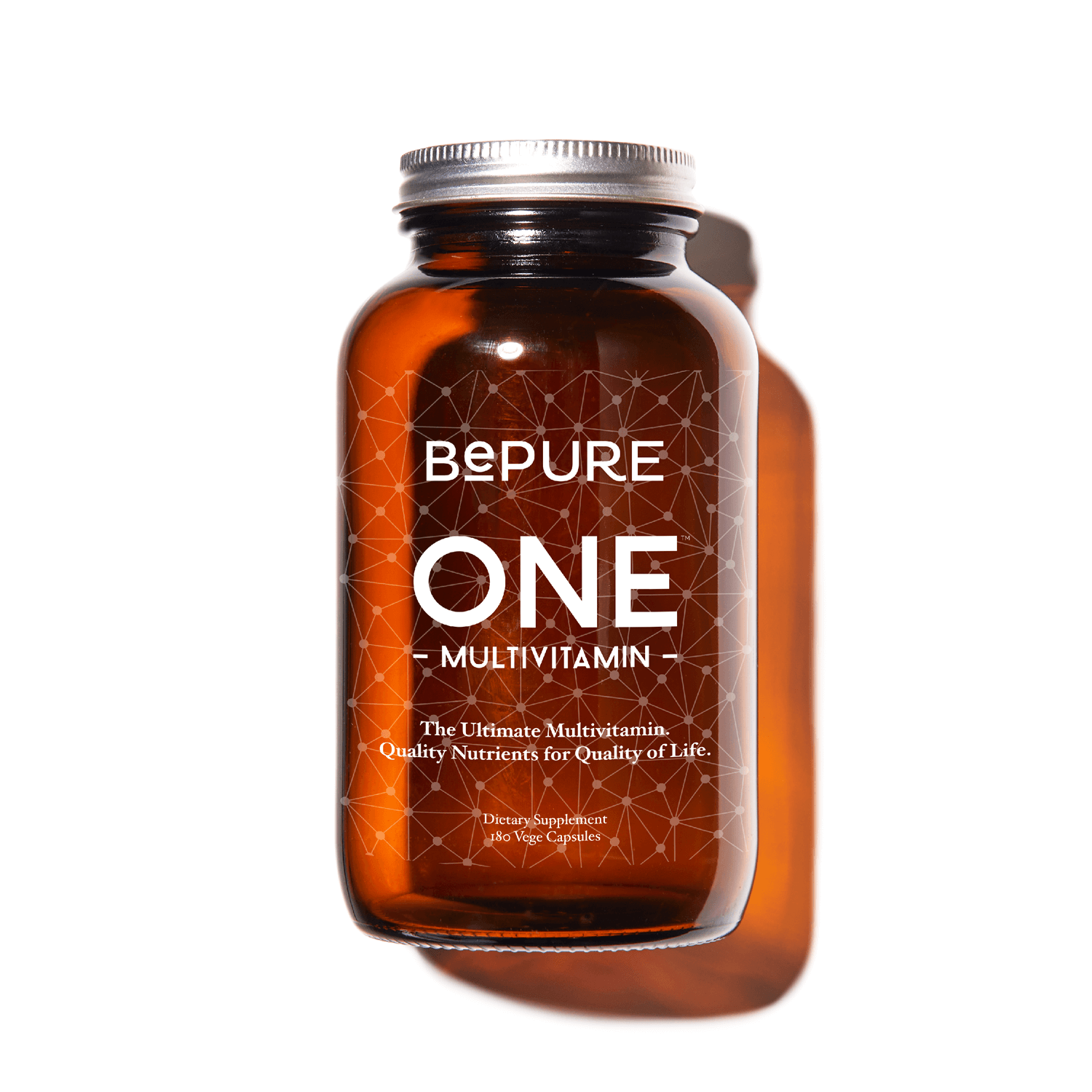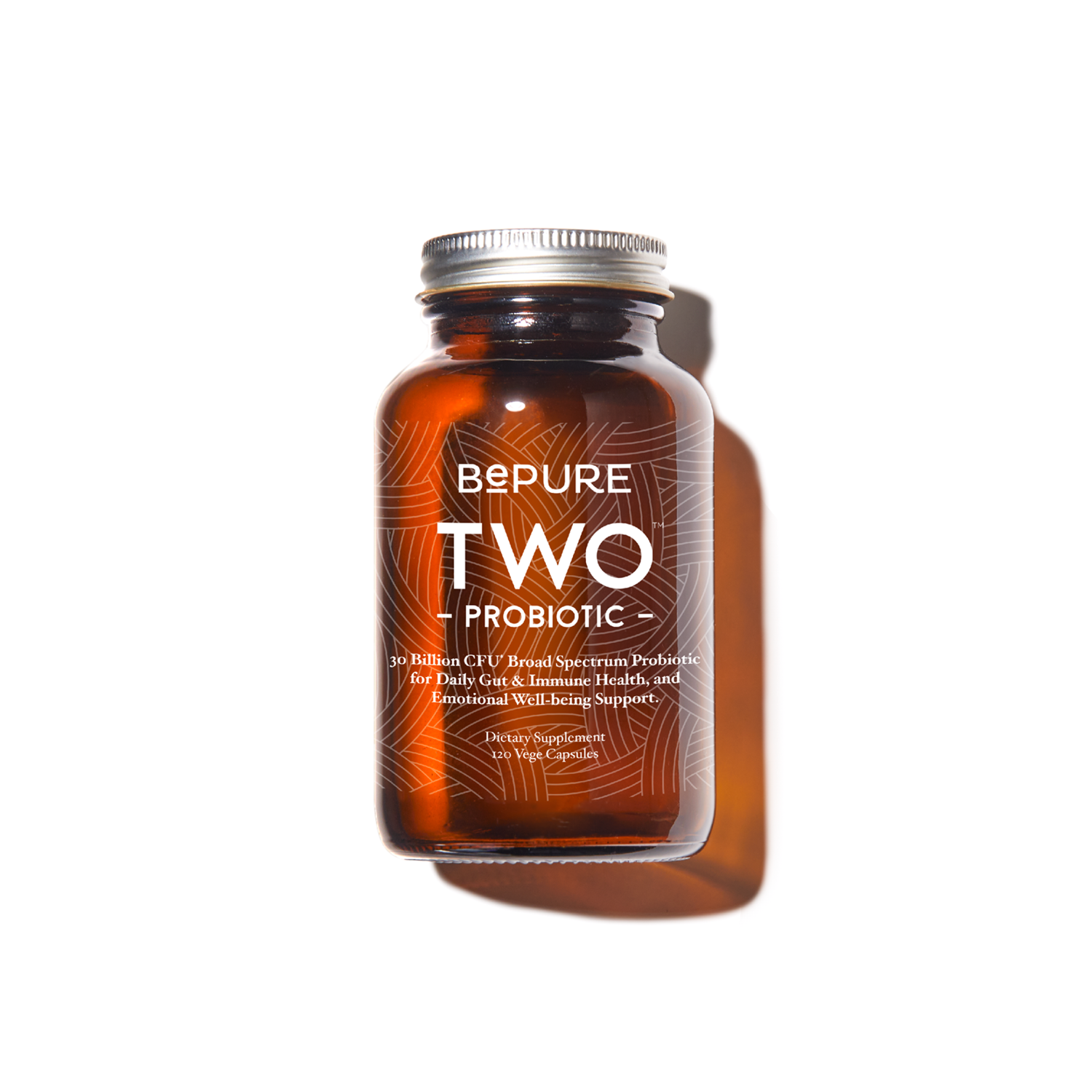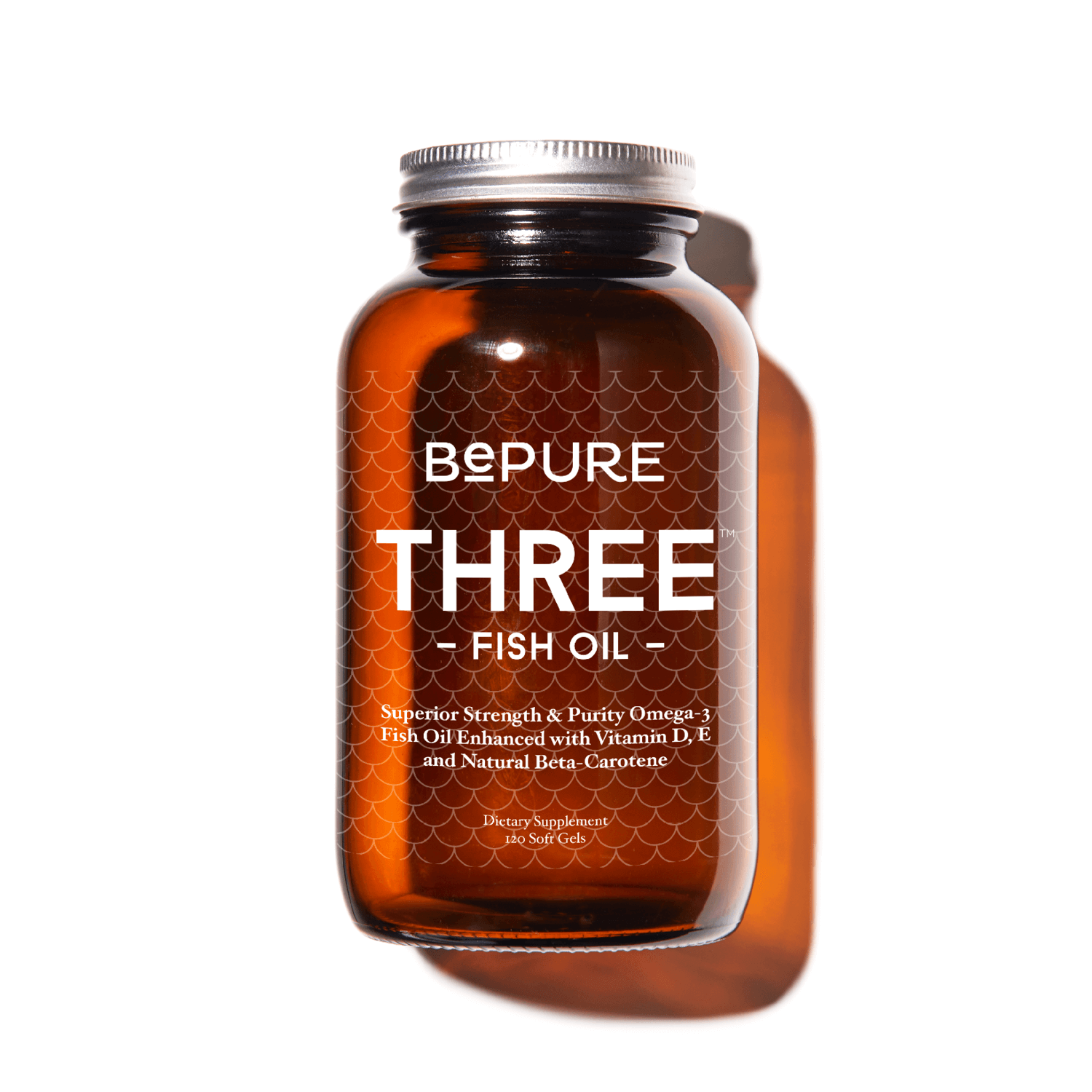We seem to think of illness, or our weight, as markers of total health. But at BePure we like to think of these things as symptoms of the state of your health - not what is driving wellness overall. Energy is the true measure for whether or not what you are eating, doing and how you are living are serving you.
Energy is what gets us out of bed each morning. It’s what gives us the ability to do the things we love. Or, if we don’t have enough of it, it can be the reason we miss out on living the life we want.
'Energy is the true measure for whether or not what you are eating, doing and how you are living are serving you.'
If you want to improve your health concerns and body, the first step is in improving your habits and energy day-to-day. There are several things that can drastically improve your energy.
The real benefit of measuring your success on your energy levels is you will notice improvements fast, well before other benefits such as weight loss or symptom reduction.
In this blog we’re going to look at what you can do to specifically improve your energy day-to-day. The key point to remember is as with many aspects of health and wellness, it’s the things you do consistently that add up to the biggest positive changes.
There’s a great quote by Malcolm Forbes which says “in the long run, a short cut seldom is.” This is especially true of trying to improve your energy. You can increase your energy in the short term by drinking a coffee or eating some sugar for a quick energy burst. However, I always like to say that the energy you get from coffee or sugar has to come from somewhere. You are receiving it now, at the expense of energy later
1. Eat to stabilise your blood sugar levels
We all probably know what it’s like to feel like to be on a blood sugar rollercoaster. You feel ravenous one, two or three hours after eating a substantial meal and need to get food quickly. So you grab the nearest thing you can find; often sugar or refined carbohydrates. Immediately your energy picks up again and you’re fine for another one, two or three hours, until the cycle repeats itself.
'Understanding how to balance your blood sugar levels is the most critical thing you can do for improving your energy long term.'
Unstable blood sugar levels are responsible for those 3pm chocolate or lollie cravings and usually are the result of eating a lunch that is unsuitable for your needs.
When we eat, food is broken down into it’s macronutrient parts and released into our bloodstream for “processing”. Carbs break down to their simpler forms; glucose, fructose or lactose, proteins break down to amino acids and fats become lipids or essential fatty acids. Our clever bodies release insulin in response to this incoming food. More insulin is released to deal with carbs but some insulin response is also triggered for proteins and a lesser response again for fats.
If you eat a food and your body can’t ‘find a home for it’ in your cells or glycogen stores, it will be stored as body fat. All of these actions require more insulin to be released. Therefore, the more insulin your body needs to produce, the more body fat you will store.
'Consistently eating - or being on the blood sugar rollercoaster - requires your body to produce insulin almost non stop.'
Consistently eating - or being on the blood sugar rollercoaster - requires your body to produce insulin almost non stop. However, when eating the right food for you, this can be processed in your body with very little difficulty, therefore requiring less insulin.
Some people thrive on a carbohydrate rich diet. For these people, carbs will keep them full for longer periods of time and the same food for them will produce a smaller insulin response than in people who run better on fats or protein. Ultimately, the right diet for you is the one that keeps you the fullest the longest.
2. Get a good night’s sleep
Given the number one symptom of a lack of energy and increased tiredness - even after a good night’s rest - sleep is critical to increasing your energy.
'...insufficient sleep has been linked to weight gain, adrenal fatigue, insulin resistance, and even elevated risk of premature death.'
Along with decreased energy, insufficient sleep has been linked to weight gain, adrenal fatigue, insulin resistance, and even elevated risk of premature death. Aim to sleep in line with your bodies natural rhythms. Winding down as night falls and waking with the sun. This means being in bed with lights out by 10pm and rising naturally after 6am.
While energy is low sleeping a minimum of 8 hours per night is critical. If you struggle with sleep make sure you turn off electronics 2 hours before going to bed and commit to a nightly wind down routine. You might enjoy a cup of chamomile tea or an epsom salts bath. Whatever you need to switch off at the end of the day.
3. Go Gluten free
One of the biggest drains on our energy is our immune system. If we are constantly producing an immune response to foods that don’t agree with us, we have less energy left for other functions. The most common food intolerance you usually see is gluten.
Gluten is a protein found in wheat, barley, and rye. Many nutritionists including myself now believe many people - not just those with Celiac Disease - should avoid gluten as it contributes to leaky gut.
This is also a problem for energy and mood because if serotonin - our happy hormone which is largely produced in the gut - is not kept within your gut and digestive tract, it cannot engage in chemical reactions within your brain to increase your energy and mood.
If you need more inspiration and help to go gluten free check out our blog on the why and how of going gluten free.
4. Stay away from sugar and processed grains
Refined grains and sugar cause blood sugar spikes and energy crashes as insulin is produced to mitigate the quick rush of glucose and fructose.
Once food is consumed, it is then broken down into its three macronutrient parts (proteins, fats and carbohydrates) to provide us with energy. The problem with both refined sugar and grains is that the release of these carbohydrates into our bloodstream is incredibly quick. Simply put, our bodies do not have to work very hard to access the energy. Because of this, refined grains and sugar cause blood sugar spikes and energy crashes as insulin is produced to mitigate the quick rush of glucose and fructose.
'...refined grains and sugar cause blood sugar spikes and energy crashes as insulin is produced to mitigate the quick rush of glucose and fructose.'
I always like to provide an example at my seminars using the Glycemic Index and both white table sugar and cornflakes. The Glycemic Index is a scale used to determine how quickly glucose from a food affects our blood sugar levels. Pure glucose sits on the scale at 100. On the GI scale, table sugar sits at 63 while a slice of white bread sits at 73 while cornflakes are 78. We know that sugar is a food we should be limiting, but actually white bread and cornflakes spike our blood sugar levels even more than table sugar!
'...white bread and cornflakes spike our blood sugar levels even more than table sugar!'
We don’t recommend excluding all grains from your diet. We recommend soaking gluten free whole grains such as brown rice, quinoa, buckwheat, amaranth and millet to increase the digestibility of these complex carbohydrates before eating however.
5. Eat leafy green veggies every day
Per gram dark leafy green veggies are among the most nutrient dense foods on the planet. Adding leafy green vegetables into your diet will provide you with vitamins, minerals and antioxidants; all of which help to boost your energy.
'Per gram dark leafy green veggies are among the most nutrient dense foods on the planet.'
Leafy green veggies include spinach, watercress, broccoli, cabbage, silverbeet, kale, rocket, lettuce, sprouts, beetroot leaves, alfalfa, brussel sprouts and chard.
6. Drink more water
Water is your ultimate energy booster. Our body is made up of 60% water, so making sure that you are getting optimal amounts of chlorine, fluoride-free, structured re-mineralised water is essential for incredible health and energy.
'Our body is made up of 60% water... optimal amounts of quality water is absolutely essential to your health.'
Water transports nutrients throughout the body, aids in digestion, regulates temperature, facilitates all pathways of detoxification, protects our joints, promotes healthy bowel movements, improves mental concentration and relieves fatigue.
Optimal amounts of quality water is absolutely essential to your health. You can learn more about this in our blog The Importance of Hydration.
So, how much water should you be drinking?
It is important to drink the right amount of water for you according to your weight. To work this out the formula we use is: 0.033 litres per kg of body weight.
Which roughly equates to the following amounts:
60 kg = 2 litres
75 kg = 2.5 litres
90 kg= 3 litres
105 kg = 3.5 litres
For every caffeinated beverage you consume, be sure to drink two glasses of water to maintain proper hydration.
Avoid drinking from plastic bottles to limit your exposure to xenoestrogens and PCBs.
Limit caffeine to 1 cup per day, before midday.
7. Move your body daily
Exercise is important for healthy body systems. It activates the lymphatic system to help the body’s detox pathways, it’s critical for mood and can help increase insulin sensitivity.
'If you are struggling with energy currently you need to consider the types of exercise that are best for you right now.'
However, stress is stress, whether we perceive the action to be stressful or not. Chronic intense exercise is incredibly stressful on our bodies. If you are struggling with energy currently you need to consider the types of exercise that are best for you right now.
Intense exercise has it’s place. High intensity interval training can improve mitochondrial function and improve your metabolism, but it needs to be short, intense and relatively infrequent with lots of recovery time. Think twice per week for twenty minutes or less, not boot camp every morning for one hour.
It's important to keep moving, but opt for walking, yoga or pilates. You don't need to stress your body right now with intense HIIT or weight training. If you still want to continue with weights, scale back the intensity maybe focus on body weight exercises and lift less frequently with more recovery.
8. Support your body with the nutrients it needs
Every major metabolic pathway in our body depends on micronutrients; vitamins and minerals. The key to good nutrition, health and energy is ensuring you have enough of these micronutrients.
'Every major metabolic pathway in our body depends on micronutrients; vitamins and minerals.'
Because of modern processing methods, nutrient deficiencies in our soils and the stress of modern living, we are more deficient in critical nutrients than ever before. We are also eating less traditional foods such as liver and other organ meat that our ancestors ate. Liver is among the most nutrient dense foods on the planet and is great for increasing your energy. We have a great recipe for chicken liver pate on our blog.
'Because of modern processing methods, nutrient deficiencies in our soils and the stress of modern living, we are more deficient in critical nutrients than ever before.'
If your lack of energy is persistent, it is critical to assess your nutrient status and boost your levels of certain key nutrients.
The common nutrient deficiencies we see relating to low energy are zinc, b vitamins, iodine and vitamin D.
CoQ10 is found within every cell in the body and is essential for energy production. Functionally CoQ10 assists the body’s electron transport chain in efficiency and effectively creates ‘free energy’ for the body. Vitamin C is required for hormone synthesis in the body. It directly affects the ability of your body to make hormones required for energy.
Zinc deficiency is so common therefore, we have devised a functional BePure Zinc Taste Test to help identify your zinc status. Being able to taste zinc (which should taste very bitter) in a water solution depends on having enough zinc in your body to detect it.
Many people who take this test, drink the liquid and think it is simply water. We tested over 2000 people at the BePure Live Well Festival recently and found that over 50% of people had some degree of zinc deficiency.
Obviously focusing on energy-giving foods, daily gentle movement and adequate sleep are vital factors in health. We can take steps to increase the nutrition we get through our food by changing our spending habits; focusing on spray free organic produce, eating more organ meats, growing our own vegetables and reducing our exposure to toxins. All of these factors combined with quality nutritional support will help us reach our optimal nutritional requirements.
'Focusing on your energy is the best way to determine if your habits and the changes you have made to your lifestyle are working.'
Focusing on your energy is the best way to determine if your habits and the changes you have made to your lifestyle are working. It can take a long time to see vast improvements with body composition or a chronic illness. In focusing on energy, we can see incremental improvements quickly that are gratifying and help keep us on the path towards success. Ultimately having the energy to do what excites you is the most important gift you can give to yourself.



